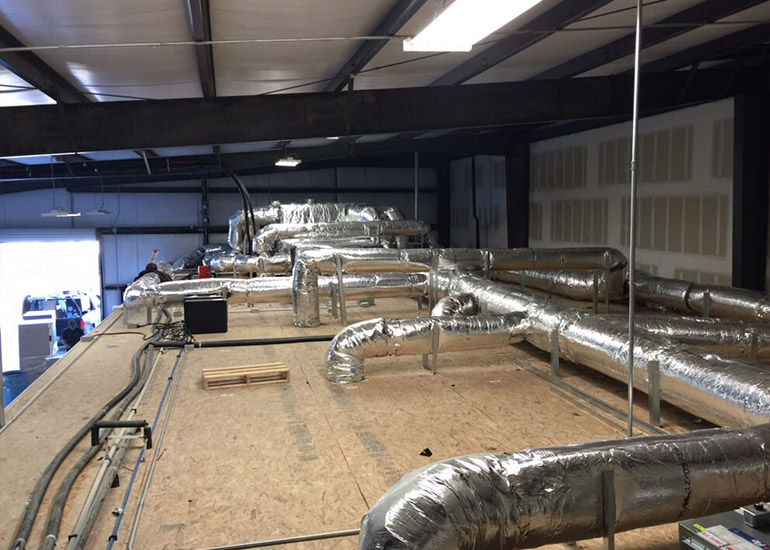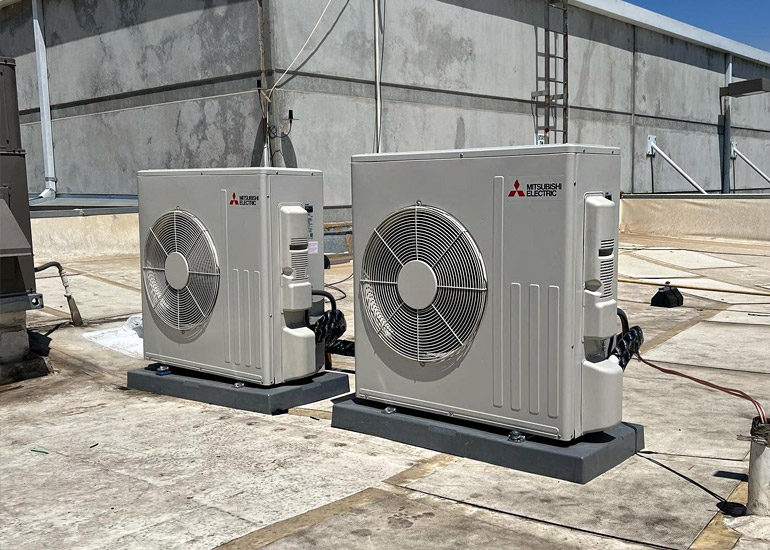
This may surprise you, but federal tax code no longer requires you to depreciate the HVAC you invest in for your commercial rental property. Instead, taxes allow you to write it off entirely.Those who own commercial buildings will need to purchase commercial HVAC equipment eventually, including cooling, heating and air circulation and purification equipment. All of this can be expensive, but you writing-off the purchase can help you. The rules for doing so are much simpler than they used to be.
What to Do Instead of Depreciating
Old federal rules had commercial HVAC buyers depreciating their new equipment for 39 years! As of January 1, 2018, new tax law amendments were made allowing commercial property owners to deduct the whole cost of their equipment, along with the cost of the labor to install it. You can do both in the year that you purchased your new equipment.
The change was to count most HVAC equipment as a “qualifying property” in the preexisting Section 179 of the federal tax code. Qualifying equipment may include used HVAC systems as well as new ones.
You can write off a total in 2.5 million dollars of equipment, at a 1 million deduction limit, according to the details in Section 179. You should run this by your accountant of course, as every business is different, and you want to use your deductions to their best benefit.
Similarly, it can be wise to plan out the purchase of your commercial HVAC equipment in order to take advantage of these tax benefits. If you approach the maximum write off, you may want to hold off on purchases until the next tax year in order to maximize your deductions.
Things to Ask Your Accountant
When you’re renting out a commercial property you have a lot to do. Hopefully, you have an accountant to handle the finer details of your tax situation. If you do, there are some considerations for writing off HVAC equipment that you should talk to them about:
- IRS Form 4562: This is the form that your accountant needs to fill out in order to write off your HVAC equipment and other qualifying equipment. Ask your accountant if they are including this form in your tax return.
- Filing amendments: If you’ve already tried to depreciate your HVAC equipment under the old rules, then you may want to file an amendment. This can allow you to change your return, so you write off the total value of your equipment and the labor to install it at once.
Things to Ask Your HVAC Technician
Your accountant isn’t the only professional who can help you make wiser tax decisions when it comes to your HVAC equipment. Here are some things to ask your technician:
- Qualified equipment: Your technician can confirm for you if the equipment you’re purchasing is eligible under Section 179. Almost all equipment is, but it is good to check.
- When should I invest: Your HVAC technician can help you assess when you’ll need to purchase new equipment, and timing this carefully can be advantageous at tax time.
For more information, reach out to our commercial heating and cooling team.
You May Also Be Interested In:
Irish Heating and Air2023-09-01T14:45:28+00:00October 6th, 2022|Commercial HVAC|
Share This Story, Choose Your Platform!
Related Posts
As an expert in tax law and commercial property management, I can confidently affirm the accuracy of the information provided in the article. The changes in the federal tax code regarding the depreciation of HVAC equipment for commercial rental properties are indeed accurate and significant.
The article rightly highlights the shift in tax regulations, emphasizing that commercial property owners are no longer required to depreciate their HVAC investments over a prolonged period. Instead, they can now write off the entire cost of the equipment, including installation labor, in the year of purchase.
The key concept here is the incorporation of HVAC equipment as "qualifying property" under Section 179 of the federal tax code. This section allows for the immediate deduction of the full cost of qualifying property, up to a limit. In this case, the limit is mentioned as a total deduction of 2.5 million dollars, with a 1 million dollar deduction limit for HVAC equipment.
The advice provided in the article to consult with an accountant is crucial. Given the variations in business structures and financial situations, seeking professional advice ensures that property owners make the most of these tax benefits. Accountants play a pivotal role in completing IRS Form 4562, the document required for writing off HVAC equipment and other qualifying assets.
Additionally, the article suggests planning the purchase of commercial HVAC equipment strategically to maximize tax benefits. If a property owner is approaching the deduction limit, it may be wise to time the purchase to align with the next tax year.
Furthermore, the article recognizes the role of HVAC technicians in the decision-making process. Property owners are advised to consult their HVAC technicians to confirm if the equipment qualifies under Section 179. Additionally, the timing of the equipment purchase is discussed, emphasizing the importance of assessing when new HVAC equipment is needed and how that timing can impact tax advantages.
In conclusion, the information provided in the article is accurate and valuable for commercial property owners looking to navigate the complexities of tax regulations related to HVAC investments. The insights offered by the article demonstrate a comprehensive understanding of the changes in tax laws and provide practical advice for maximizing tax benefits in the context of commercial HVAC equipment.




